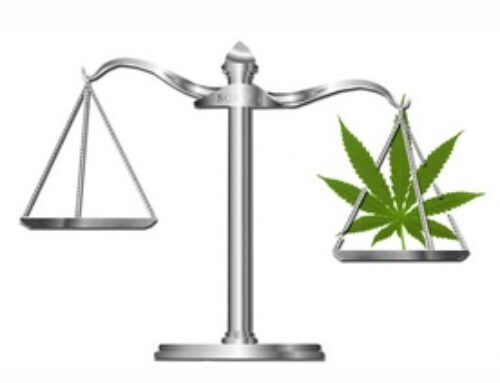Colorado lawmakers advanced an amended social media bill on Thursday that, as introduced, would have forced platforms to ban users for talking positively about marijuana online. But while the sponsor says the issue has now been “worked out” with recent changes, critics contend the revised legislation still fails to address concerns around statements regarding other substances, including state-legal psychedelics, certain hemp products and even some over-the-counter cough syrups.
The bill, SB24-158—a broad proposal concerning internet age verification and content policies—would require social media platforms to immediately remove any user “who promotes, sells, or advertises an illicit substance.”
Initially that provision would have applied to all controlled substances under state law, but an amendment from the bill’s sponsor, Sen. Chris Hansen (D), includes language saying that “a social media platform may allow a user to promote, sell, or advertise medical marijuana or retail marijuana to users who are at least twenty-one years of age” so long as the content complies with state cannabis laws.
Members of the Senate Committee on Business, Labor and Technology at Thursday’s hearing unanimously approved the amended bill, advancing it to the Appropriations Committee with a favorable report.
“We have worked out adjustment language with the MJ industry,” Hansen told Marijuana Moment in an email about the amendment last week, in response to questions about the potential consequences of the bill. “Those amendments will be distributed later today in preparation for the bill being voted on in committee on Thursday.”
But even before the amendment landed in committee this week, a fellow at the center-right think tank R Street Institute, said the changes leave major issues unaddressed.
“The updated version would still prevent users from from promoting NyQuil or anti-anxiety medications among many others, even though it exempts marijuana,” Shoshana Weismann, who first called out the potential problems in the bill’s drug-related language, told Marijuana Moment in an email. “And if you promote those medications, you will be reported to law enforcement. That is asinine.”
The amended bill also still specifies that its restrictions apply to certain hemp products with more than 1.25 milligrams THC or a CBD-to-THC ratio of less than 20 to 1, as well as most other hemp-containing products intended for human consumption that are not “a dietary supplement, a food, a food additive, or an herb.”
Hansen, the bill’s sponsor, has not responded to separate questions sent by Marijuana Moment last week about whether his legislation intends to ban, for example, a 19-year old medical marijuana patient who posts about medical marijuana to their Instagram story, a user posting to Facebook that the use of a Schedule V over-the-counter cough syrup helped them feel better or even potentially promotion by Gov. Jared Polis (D) of the state’s legal psychedelics industry—as a plain reading of the bill might suggest.
He said more than a week ago that he was “working on answers” to those Social media companies would be required to update policies and post them publicly on or before July 1, 2025 under the proposal. Updates to social media policies would also need to be posted online within 14 days of implementation.
Companies would also be mandated to submit reports annually to the state attorney general a statement “of whether the current version of the published policies contain definitions and provisions relating to illicit substances,” according to a legislative summary of the bill.
Meanwhile in Colorado, organizers at a Second Amendment advocacy group are poised to begin gathering signatures on a ballot measure that would allow cannabis consumers to obtain concealed carry firearm licenses under state law.
Colorado legalized adult-use cannabis through a ballot initiative in 2012, though cannabis remains prohibited at the federal level. And under federal law, being an “unlawful user” of a controlled substance, including marijuana, means a person cannot legally buy or possess a gun.
Earlier this year, Colorado marijuana regulators also touted industry successes from the past year and promoted their new hospitality rules for the industry, including increased sales limits for cannabis hospitality businesses that allow on-site use.
One of the things they touted is a rule about online sales that took effect last August. Customers must still physically pick up the marijuana products from retailers, but now they can browse and electronically purchase cannabis online ahead of visiting the store.
Polis has praised the state’s reputation on marijuana and even said in January that Colorado is “leading the nation” on psychedelics, just as it did with cannabis.
“Colorado was the first state to legalize recreational use of cannabis, setting a standard for innovation and safety and economic mobility that’s been replicated by states across the nation and countries across the world, who come here to learn what Colorado did right,” Polis said in his latest State of the State address. “Now, thanks to our voters, we’re once again leading the nation on natural medicine, unfreezing 50-plus years of stifled research to learn about the potential benefits for the people of our state and beyond.”







